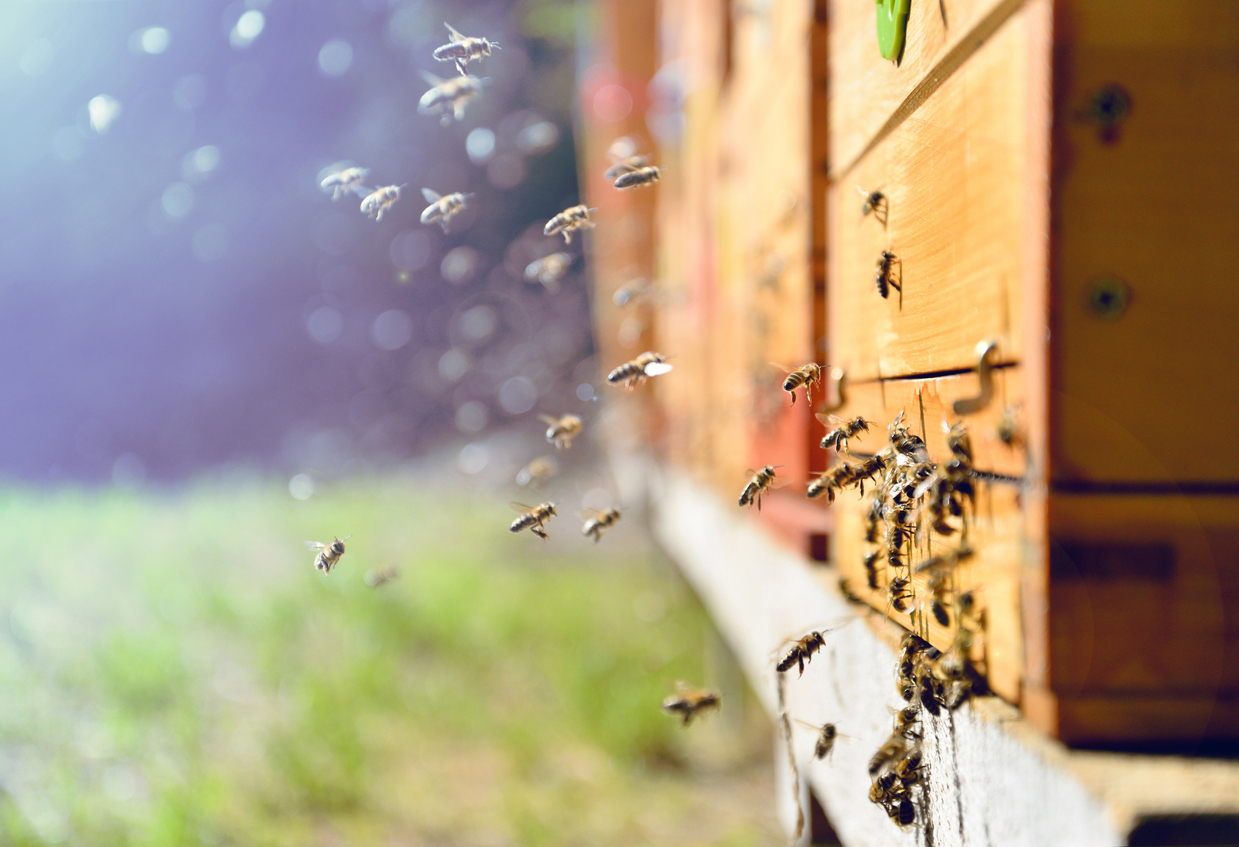Finnish scientists are developing the first-ever insect vaccine to save dying bees


A free daily email with the biggest news stories of the day – and the best features from TheWeek.com
You are now subscribed
Your newsletter sign-up was successful
We may finally be ready to save the bees.
Scientists in Finland say they have developed an edible vaccine for the prominent and deadly bacterial disease American foulbrood, which spreads rapidly in honeybee populations, NPR reports.
The Finnish researchers are calling the vaccine “PrimeBEE” and say it can be given to the queen bee via a sugar patty.
The Week
Escape your echo chamber. Get the facts behind the news, plus analysis from multiple perspectives.

Sign up for The Week's Free Newsletters
From our morning news briefing to a weekly Good News Newsletter, get the best of The Week delivered directly to your inbox.
From our morning news briefing to a weekly Good News Newsletter, get the best of The Week delivered directly to your inbox.
President of the D.C. Beekeepers Alliance Toni Burnham told NPR that the disease is a "death sentence" for a hive, and particularly concerning given the world's declining bee populations.
"If a colony is diagnosed with AFB — regardless of the level of the infestation — it burns," Burnham told NPR. "Every bit of it burns; the bees are killed and the woodenware burns, and it's gone."
The vaccine is still undergoing safety tests, and developers are working on launching a business for the product, according to a press release. But scientist Dalial Freitak, who worked on the vaccine, says the medication could be a breakthrough. "We need to help honeybees, absolutely," Freitak said. "Even improving their life a little would have a big effect on the global scale."
A free daily email with the biggest news stories of the day – and the best features from TheWeek.com
Marianne is The Week’s Social Media Editor. She is a native Tennessean and recent graduate of Ohio University, where she studied journalism and political science. Marianne has previously written for The Daily Beast, The Crime Report, and The Moroccan Times.
-
 What to know before filing your own taxes for the first time
What to know before filing your own taxes for the first timethe explainer Tackle this financial milestone with confidence
-
 The biggest box office flops of the 21st century
The biggest box office flops of the 21st centuryin depth Unnecessary remakes and turgid, expensive CGI-fests highlight this list of these most notorious box-office losers
-
 What are the best investments for beginners?
What are the best investments for beginners?The Explainer Stocks and ETFs and bonds, oh my
-
 Blue Origin launches Mars probes in NASA debut
Blue Origin launches Mars probes in NASA debutSpeed Read The New Glenn rocket is carrying small twin spacecraft toward Mars as part of NASA’s Escapade mission
-
 Dinosaurs were thriving before asteroid, study finds
Dinosaurs were thriving before asteroid, study findsSpeed Read The dinosaurs would not have gone extinct if not for the asteroid
-
 SpaceX breaks Starship losing streak in 10th test
SpaceX breaks Starship losing streak in 10th testspeed read The Starship rocket's test flight was largely successful, deploying eight dummy satellites during its hour in space
-
 Rabbits with 'horns' sighted across Colorado
Rabbits with 'horns' sighted across Coloradospeed read These creatures are infected with the 'mostly harmless' Shope papilloma virus
-
 Lithium shows promise in Alzheimer's study
Lithium shows promise in Alzheimer's studySpeed Read Potential new treatments could use small amounts of the common metal
-
 Scientists discover cause of massive sea star die-off
Scientists discover cause of massive sea star die-offSpeed Read A bacteria related to cholera has been found responsible for the deaths of more than 5 billion sea stars
-
 'Thriving' ecosystem found 30,000 feet undersea
'Thriving' ecosystem found 30,000 feet underseaSpeed Read Researchers discovered communities of creatures living in frigid, pitch-black waters under high pressure
-
 New York plans first nuclear plant in 36 years
New York plans first nuclear plant in 36 yearsSpeed Read The plant, to be constructed somewhere in upstate New York, will produce enough energy to power a million homes
